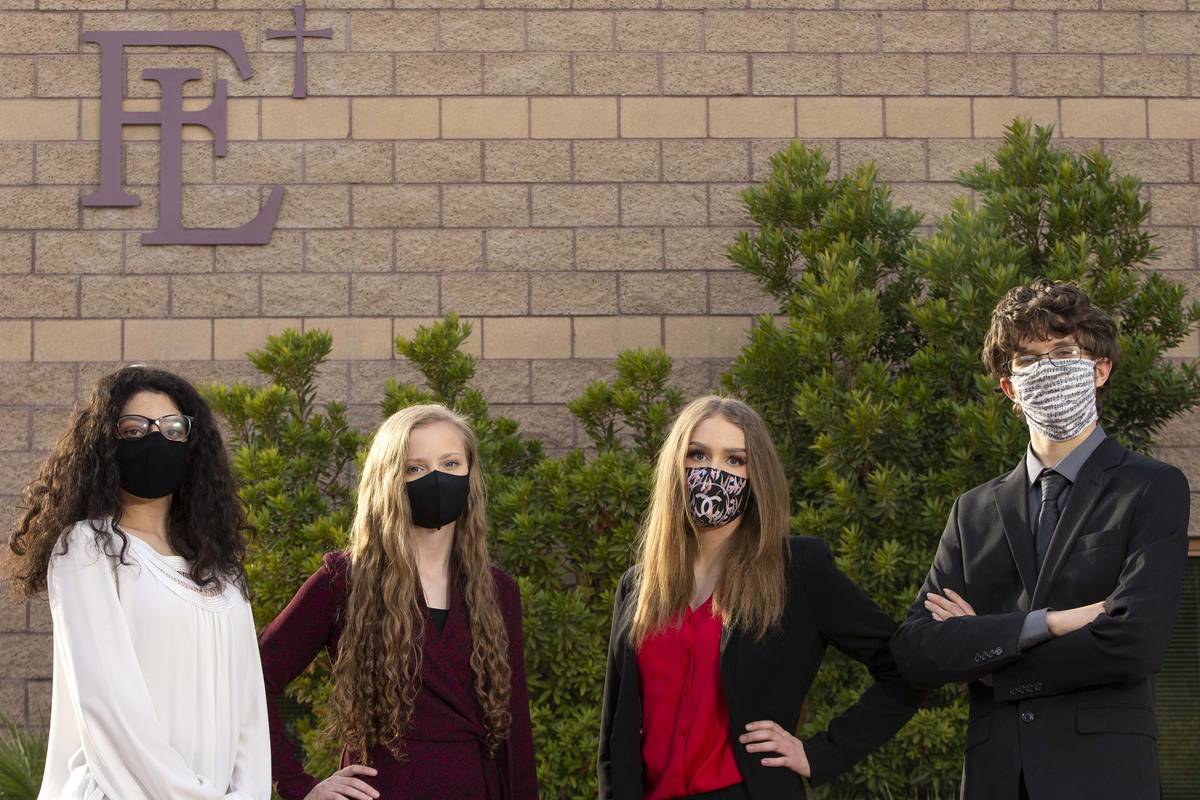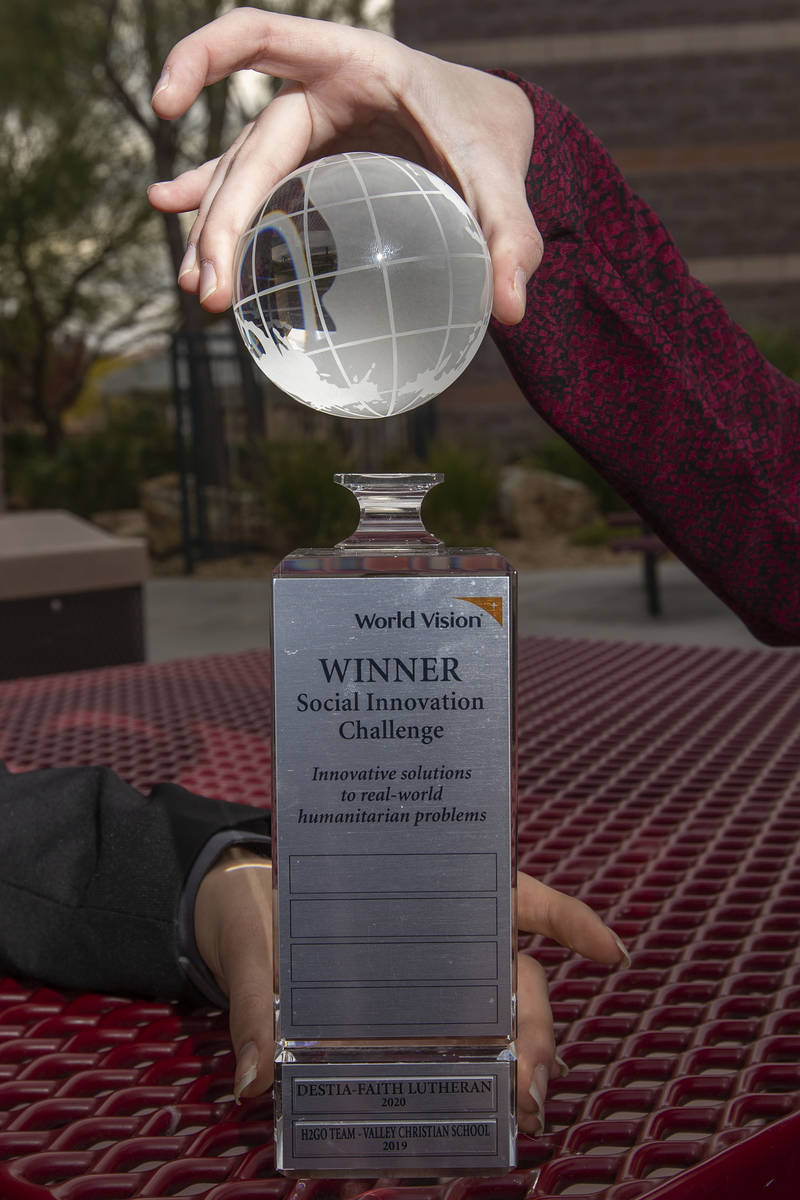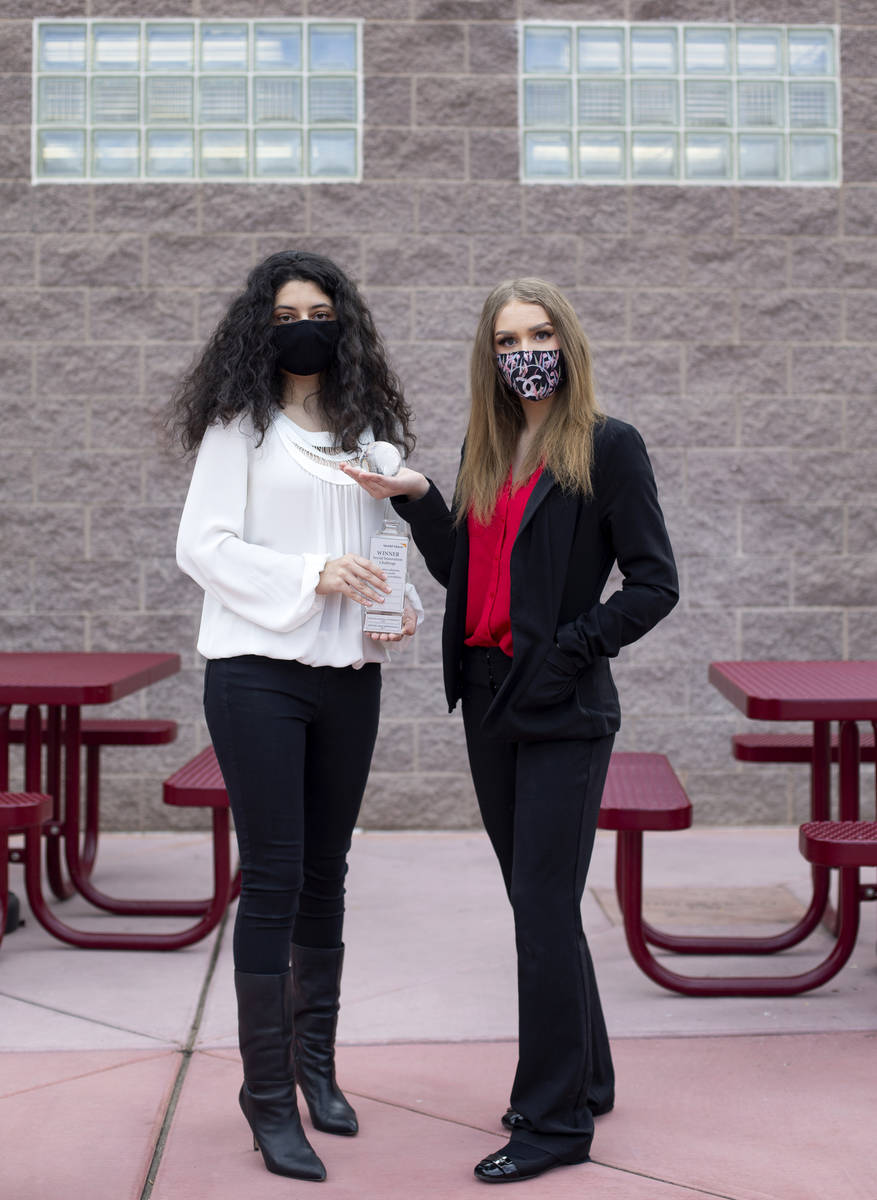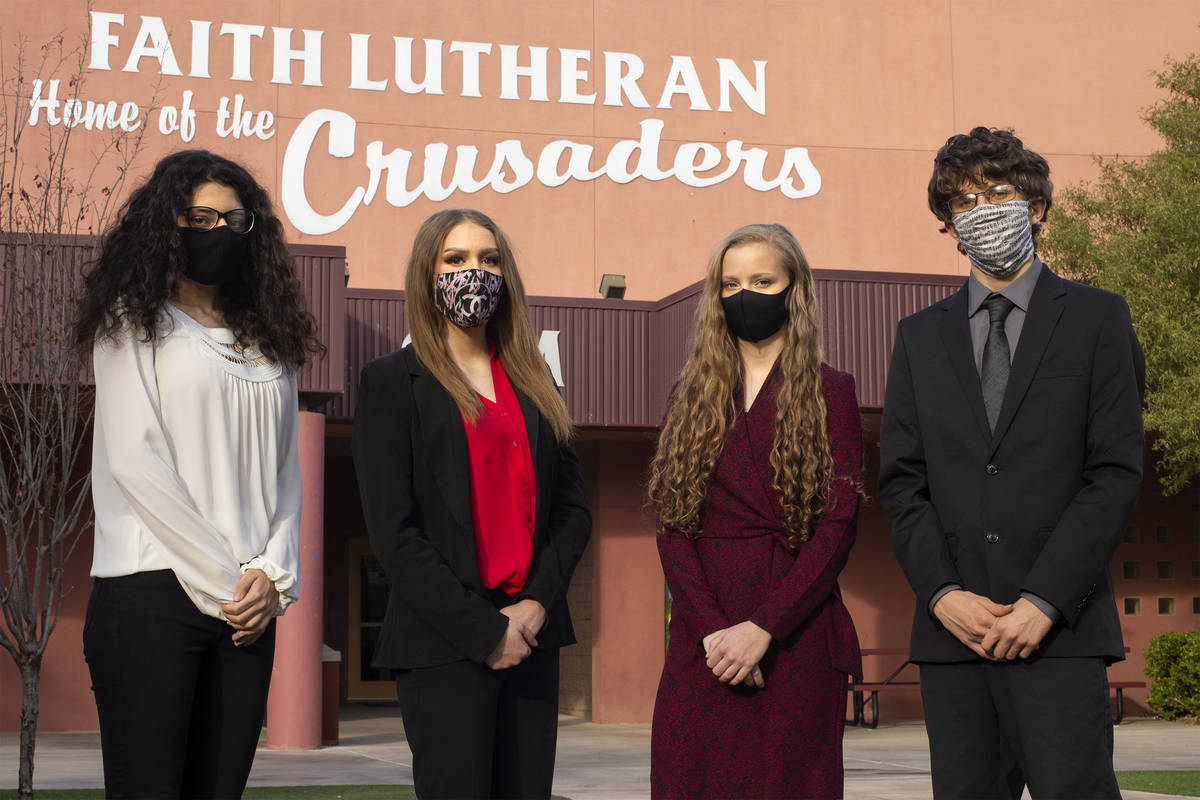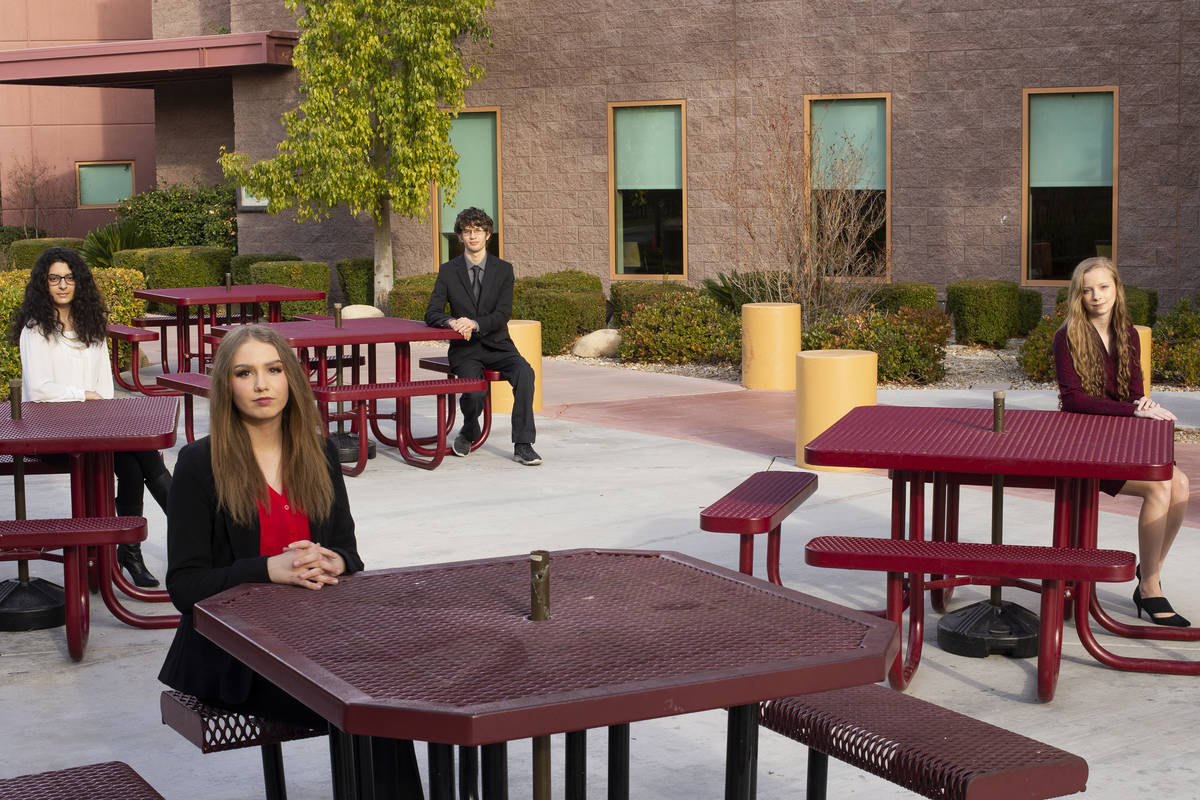Las Vegas students win trip to Ethiopia to create community garden
Four sophomores at Faith Lutheran Middle and High School in Las Vegas will be heading to the east African nation of Ethiopia to implement a community garden proposal after winning $25,000 in a national competition.
Elyssa Bahr, Nikki Manukyan, McKenna Erwin and Mason DeVore were the winners of World Vision International’s annual Social Innovation Challenge. Because of the COVID-19 pandemic, the timeline for their Ethiopia trip is still in flux, but it could happen as early as this summer.
It’s the second year Faith Lutheran, a private school with more than 1,900 students, has participated in the contest put on by World Vision, a nonprofit Christian humanitarian organization that works in nearly 100 countries.
Faith Lutheran put forth strong proposals, said Derek Sciba, a Seattle area-based spokesman for World Vision USA.
“They brought their ‘A’ game this year … and (showed) that they can imagine a real-world solution to a problem that affects the lives of other young people who happen to live across the world,” he said.
The Social Innovation Challenge is part of World Vision Ignite, a partnership between the organization and about a dozen Christian schools. Each year, World Vision identifies a problem for students to address after speaking with its partners in field offices worldwide.
This year’s challenge sought proposals for combating drug addiction in teens in Kolfe Keranio, a community in Addis Ababa, the capital of Ethiopia. The area was selected because of its high youth unemployment rate and an outsized problem with its young people chewing khat, a plant with stimulant properties that can cause psychological dependence, according to the World Health Organization.
Faith Lutheran students signed up voluntarily for the challenge as an extracurricular activity.
“When they first announced it during chapel, I wanted to do it because it was just a chance to help people out,” said DeVore, 16.
Teams of students spent about seven months on their proposals. Four teams put forth serious proposals, and two made it to the semifinals, said Faith Lutheran Principal R. Scott Fogo, who was also the winning team’s adviser.
For this year’s challenge, World Vision received six proposals, all from schools with which it partners. Proposals were judged by World Vision employees, including those in the nonprofit’s Ethiopia field office, as well as business leaders and school administrators.
Entrants were given five minutes to pitch their proposals on Nov. 10 and found out that night who won the competition.
Once the announcement was made, “it took a second for it to really set in,” DeVore said, but then “it was just an overwhelming excitement.”
The students will start working with World Vision employees from the United States and Ethiopia in January on implementing their community garden project.
“Given that it’s a gardening proposal, we need to secure land, and we also need to work through the mindset within the community to see this as something they want to be part of,” Sciba said.
The proposal calls for the sale of produce from the community garden, which will use a drip irrigation system, to local retailers.
Shortly after hearing about the Social Innovation Challenge last school year, Manukyan, 15, dropped her pasta at lunch and couldn’t eat it. She said she was hungry and lacked energy for the rest of the day.
It led her to think, “If I’m low on energy this one time, how do kids in Ethiopia feel?” she said, adding that it must take a toll on their mental health and schooling. She said she thinks the most efficient way to help is by producing food.
The winning team used Zoom for virtual video meetings during the spring and summer amid the COVID-19 pandemic. Some days, they spent 13 hours or more working on their proposal, ending the day only when they were “exhausted or satisfied,” said DeVore.
Once Faith Lutheran reopened in August under a hybrid model — a mix of in-person and remote instruction — students were able to work on their pitch presentation in-person at school.
Manukyan said she and her teammates learned a lot about how to write a proposal through trial and error.
She said that many ideas sound good on paper, but don’t work out as well in practicality. But she said if the team can help even a small geographic area in Ethiopia, they’re hopeful they can expand the community garden model to more places.
Bahr, 16, said she has family members who’ve struggled with addictions to stimulants and wanted to help teens and younger children in Ethiopia make a change.
She said her team learned how to create a business, since the community garden must be self-sustaining and employ local young people. They also learned about topics such as irrigation systems and the climate in Ethiopia.
Erwin, also 16, said she wanted to get involved because she knows a pastor who went on a mission trip to Ethiopia and became addicted to khat.
“That kind of hit home for me,” she said.
Contact Julie Wootton-Greener at jgreener@reviewjournal.com or 702-387-2921. Follow @julieswootton on Twitter.



